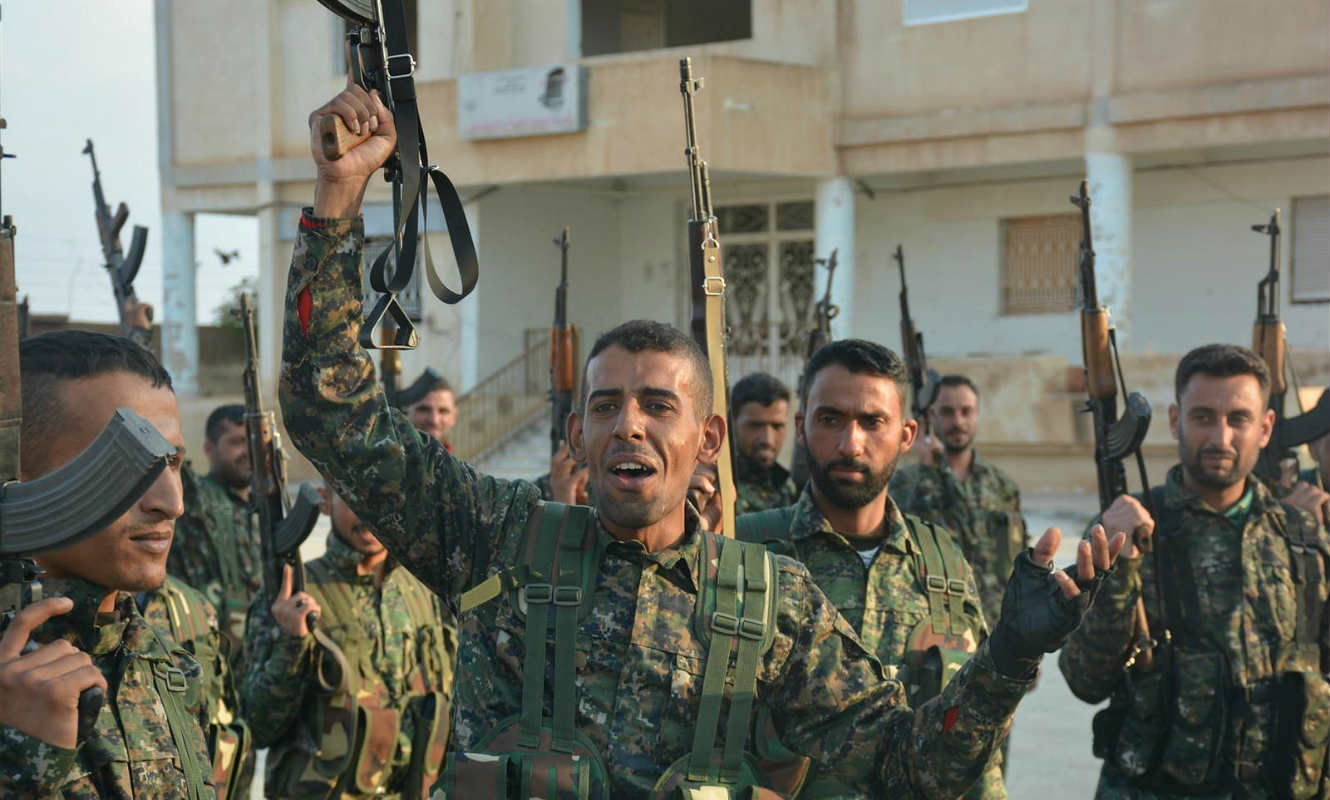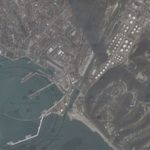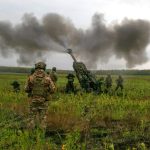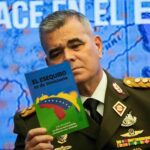The following is an operational review focused on Operation Euphrates Shield, launched, coordinated by the Turkish Armed Forces and spearheaded by the Free Syrian Army (FSA) and allies.
Preface
On 24th July 2016, limited Turkish tanks assets alongside Special Operators have passed the border into Syria, also assisting hundreds of Free Syrian Army (FSA) rebels to liberate the Syrian border city of Jarabulus (Operation Euphrates Shield). Located in NE Aleppo Governorate, on the north-eastern banks of the Syrian Euphrates river, the city has been under Da’esh (ISIS) control for over 2 years. Besides the internal security threat posed by Da’esh a more prioritized liability is presented by the PKK that operates inside Turkey since the 80’s and its Allies in Syria and Iraq. The PYD political groups from northern Syria has established military wings – YPG/ YPJ – since 2013 and are leading the US-backed multi-ethnic military organization Syrian Democratic Forces (SDF). Recent success of this group, lead and populated 60% by Kurdish forces, was translate on the ground by territorial advancements in Manbij and intentions towards Al-Bab and Jarabulus; the later city being right at the Turkish border. After this developments, Ankara has threatened and acted upon it’s words:
- it invaded Syria to free the only ISIS-Turkish bordering territory remaining from the terrorist group,
- to fight the Kurdish YPG military wing of PYD and the Kurdish-led umbrella organization Syrian Democratic Forces (SDF)
Immediate Turkish risks from Kurds:
- uniting the Kurdish cantons (Afrin with Al-Hasakah)
- realization of the Rojava Federation, which was officially self-declared earlier this war.

Kurdish YPG forces (Kurdishstruggle)
Results
On 4th of September, 2016, Turkey has entered Syria through Al-Rai, the other Syrian city located at the extremity of the remaining Turkish-ISIS bordering land. While on the eastern “mini-front” started in Jarabulus were significant advancements, Ankara sent tanks, artillery and operators to assist the FSA groups located in Al-Rai in liberating the city and then marching along the border to rendezvous with the troops coming in from Jarabulus. The secured territory was united around the evening of 4th of September.

Evolution of Operation Euphrates Shield (Turkish Forces w/ FSA in PURPLE; just FSA in GREEN; ISIS in BLACK; Kurds in YELLOW)
It also confirmed a theory prospected and announced by Transylvania Intelligence’s on August 2nd 2015; but also re-emphasized in late July 2016 through this analysis (click). The theory regards the Turkish willingness in establishing a buffer zone along its direct border with ISIS, and 20-30 km deep into Syrian territory, but not necessarily with large Turkish troops, but rather by outsourcing the responsibility of offering an unusual kind and sardonic version of border patrol/ border security to rebel groups, as the Free Syrian Army (FSA) and allied Turkmen groups. As it stands now, there is no more direct border between the Republic of Turkey and Da’esh. And speaking of frontier justice, Turkey has began building a wall on its border; the first constructions have been completed near Kobani, where even clashes erupted. Ibrahim Kurdo, the foreign minister of Kurdish self-declared Kobani Canton, said two people had died of gunshot wounds and “many others were wounded” and were being treated at hospitals in Qamishli and Kobani. (source)
https://www.youtube.com/watch?v=_Xr1qjFVlwA
While military assets for a northern Syrian incursion were available even in 2015, the main problem revolved along the political consideration of such an operation. In late summer 2015 Russia just announced its intervention in the war, thus complicating Turkey’s position which didn’t had damaged relations with Moscow at that time. Later on, Turkey searched for a perfect opportunity, while swimming through troubled waters in both political and military sectors – Failed Coup generals rumored to have sabotaged a 2015 intervention in Syria.
However, the recent moderation of relations with Damascus and Teheran and re-opening talks with Russia has offered a strange and unexpected “window” to operate. The US needed to also support Ankara’s operation in order to repair its degrading post-Failed Coup relations (that also implicated the faith of the US soldiers inhabited Incirlik base; un-officially hosting nukes), even if that means tolerating Turkish attacks against direct vetted and supported operational allies as the YPG and wider SDF.
We strongly believe that the Turkish operation would not stop just at the level of security enforcement alongside the border but will actually extend towards completely ousting Da’esh southern the Governorate in order to block any possible connection between the Hasakah Kurds (SDF, YPG) and the Kurdish fighter in Afrin. In other words, the “security zone” will expand.
Founder of T-Intelligence. OSINT analyst & instructor, with experience in defense intelligence (private sector), armed conflicts, and geopolitical flashpoints.





